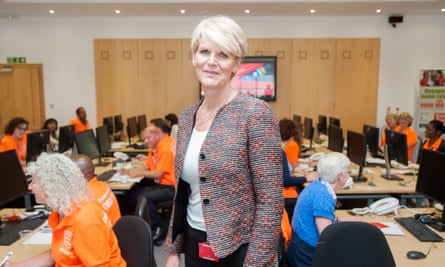When Sheffield University emailed and offered Fatemeh Roshan Ray a second chance a month before the A-level results were published she couldn’t believe her luck. Fatemeh came to London alone three years ago at the age of 18 seeking asylum from Iran, and studied furiously for science and maths A-levels at Westminster Kingsway College. When Sheffield got in touch she already had an unconditional offer to study biomedical science at another big-name university, King’s College London. But her dream was to study dentistry, one of the most competitive courses to net a place on.
“Sheffield originally refused me a place for dentistry,” she says. “But one month before A-level results day, they contacted me to say they would have some spaces in clearing. I had heard dentistry rarely goes through clearing so I wasn’t expecting that. I am so happy to have got a place.”
Once the very idea of a Russell Group university such as Sheffield making the running to woo a student on a top course might have seemed preposterous. But senior figures in the sector say this is becoming much more common, as the market in higher education gathers pace and would-be students have more power than ever before.
Now that the cap on student numbers has been removed and fees have increased, many Russell Group universities want to expand. A limited pot of top-grade students to fish from means competition is fierce. The latest Ucas estimates are that there were about 1,000 fewer students with A-levels of ABB or higher this year than the year before.
As a result, it seems that more students who dropped a grade or two in their A-level results were still able to get into their first-choice university. A Russell Group vice-chancellor, who wanted to remain anonymous, says: “There is a real game that is going on in many leading universities. The ‘sticker price’ may say three As but there is a big difference between that and the actual entry grades of many of the students they end up taking.”
A Russell Group spokesperson, while not commenting on this directly, says its universities are not lowering standards or compromising on quality, and recruit only students who can cope with their courses.
A change that was highly visible this year was that all but a small handful of the leading research universities put courses – including some traditionally competitive ones – into clearing. But what parents and prospective students did not see were the compromises many universities made behind the scenes when they found out which of the applicants they made offers to had missed their grades. Universities admit privately that such compromises have become much more widespread right across the sector. And the “top end” is certainly not immune. Ucas data shows that the proportion of applicants with BBB or equivalent at A-level being accepted to so-called “higher tariff” universities doubled over five years: from 17% in 2011 to 39% in 2015.
As one vice-chancellor says: “The first thing you do once you’ve confirmed all those who met the grades is called ‘softening’. You look at the people who have missed and decide if you want them anyway. A lot of institutions have been picking up a lot of lower-grade candidates through softening and no one knows.”
Philip Bloor, head of admissions at Sheffield Hallam University, explains: “Most institutions will have made some decisions previously about what they may be prepared to accept. For instance, if you had a maths course and ask for BBB you might decide if a student has BCC but the B is in maths you would be prepared to take them.” But he adds: “No one is in the business of recruiting irresponsibly. Your bottom line is ‘Will this student be able to succeed on the course?’”

A number of factors have disrupted the university admissions market. The population of 18-year-olds is in decline, as is the number of students leaving school with A-levels. Previously this drop in the population, which began in 2009, was balanced by the increase in the number of students wanting to go to university. But now this growth seems to be levelling out, with the latest statistics from Ucas showing that as of 2 September full-time entry to UK universities is only 1% higher than last year.
All this means it is a great time to be applying to university, and if you are likely to leave school or college with a reasonable set of A-levels Ucas says you will be in huge demand. Mary Curnock Cook, Ucas chief executive, sums it up: “Prospective students are in a stronger position now than five or six years ago. Good students are being love-bombed with offers as soon as they send in their applications.”
And crucially many experts say students should be reacting to this newfound power by aiming high. Nick Hillman, director of the Higher Education Policy Institute, says: “The smart schools are working out that they need to be as ambitious as possible for their pupils. Then someone who gets BBB with an AAB offer can get on the phone and negotiate. The question is will the university turn a student down when they represent £27,000? It’s unlikely unless they are very many grades down or unlikely to complete the course.”
A few years ago Ucas used to warn schools and parents that thousands of students were making a mistake in picking an insurance choice with the same high grades as their firm choice – potentially leaving them with nowhere to go if they missed their grades. But now Curnock Cook encourages good prospective students to take a gamble with their first choice. “It’s a pity if students are self-censoring,” she says. “For some, putting a ‘stretch’ choice as their firm choice is a good strategy as long as they have an insurance choice that represents a course they would also be really happy with.”
Hillman says the speed with which Ucas advice has changed is striking. “Two or three years ago, they said the opposite of what they now say,” he explains. “Now, Ucas urges applicants to be ambitious and to reach out for places that might have looked unattainable in the past. The thing that worries me is that it often takes time for schools, who have many other priorities, to catch up. It’s likely many schools simply don’t know how much things have changed.”
Bloor says the opening up of clearing, and a move away from the service being seen as a bargain basement, provides students who do take a punt on their initial application with a decent back-up plan. Yet he adds: “The one downside of going through clearing is that in the first round applicants have done lots of research. In clearing you lose that preparation. So we advise applicants that even if they think they won’t end up in clearing they should put some thought into how they would approach it in advance.”
Although students may have an easier ride when it comes to securing a place, Curnock Cook is quick to point out that what happens next is up to them. “I loathe the headlines that constantly ask if university is worth it,” she says passionately. “The truth is that it is worth it for every student who chooses to make it worth it. Success in life and in your career takes hard work and determination – a degree will help, but it isn’t a free pass to success just because you have a student loan.”

Comments (…)
Sign in or create your Guardian account to join the discussion